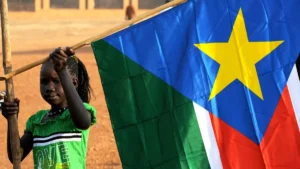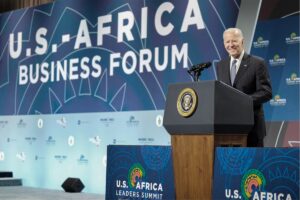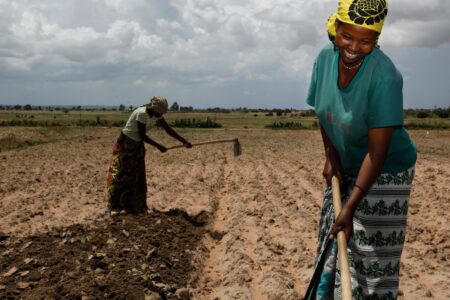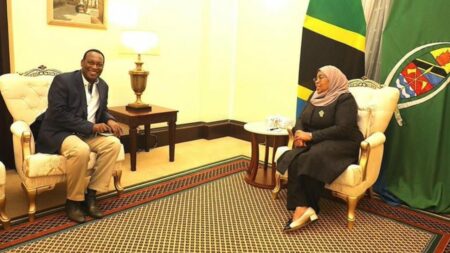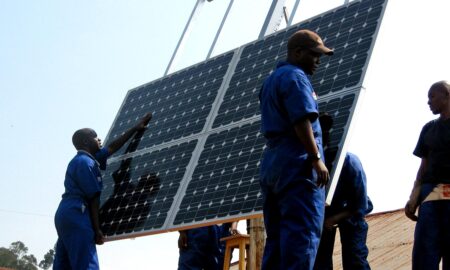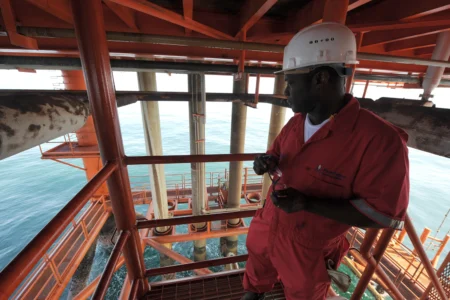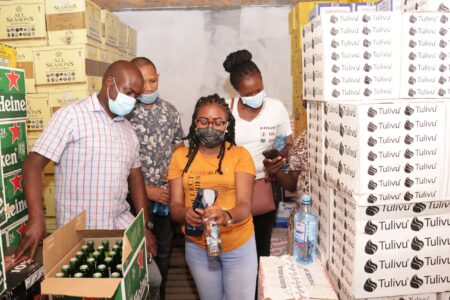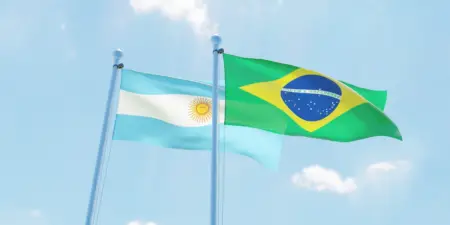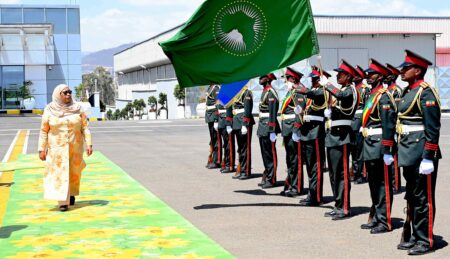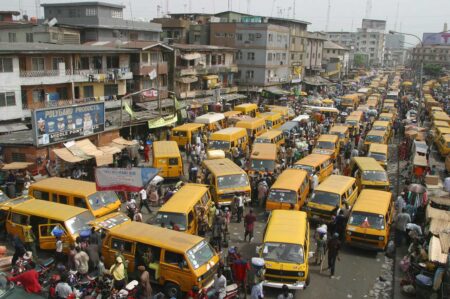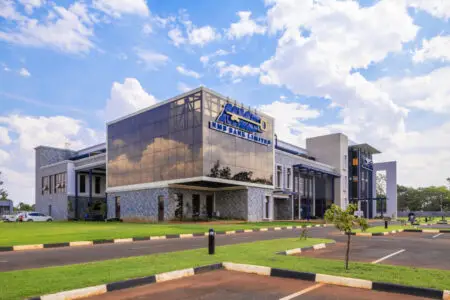- History beckons as push for Kenya’s Ruto to address US Congress gathers pace
- IMF’s Sub-Saharan Africa economic forecast shows 1.2 percent GDP growth
- The US Congress proposes extending Agoa to 2041, covering all African countries
- Millions at risk of famine as fuel tax row halts UN aid operations in South Sudan
- Empowering the Future: Humanity Protocol’s Dream Play Initiative
- TikTok Community Guidelines update aims to curb hate speech and misinformation
- Rwanda sees 39% surge in bank borrowers as Sacco and MFI loan uptake declines
- Kenya Ports Authority wins dispute case over cargo release
Browsing: premium
- The continent spends over USD60 billion yearly on food imports that it could generate domestically.
- African countries have allocated large sums to agriculture, but according to experts, this is insufficient.
- As a result, countries are experiencing deficits even as governments continue to spend billions of dollars bolstering their military defenses, which fuels conflict, displacement, and hunger.
It was previously recorded that Africa’s agricultural area has expanded by more than a third during thepast two decades (2000-2019), accounting for 52 percent of the global increase, or 102 million hectares.
The continent is said to contain around one-fourth of the world’s agricultural land but millions of people continue to face malnutrition as dry and semi-arid regions are devastated by drought.
Politics in Tanzania are now taking a different shape compared to the past five years. Opposition parties in Tanzania, such as CHADEMA and ACT are collaborating with the main leading party CCM to put the nation in the right economic boost trajectory.
Over the past two decades, East Africa has witnessed how political instability has dealt a blow to economic growth. During the 2007/2008 post-election violence in Kenya, the country recorded its worst economic performance. The ripple effects spread to neigbouring countries of Uganda and as far as Rwanda and DRC.
Tanzania had its own political turmoil between 2015 and 2020 where human rights and press freedom were often infringement.
However, Tanzania, which has ambitions of becoming an industry-driven economy, is tuning its economic pro-growth policies in the right way to attract the necessary investors and environment for sustainable development.
This economic vision is now being backed by President Samia …
Today Africa is on the frontier of ushering in a new age of technology in its various economic sectors. As such, the continent needs to provide not only sufficient and sustainable energy but also one that has scalability, ensuring that each sector benefits from it. Thus, experts and innovators have turned to solar energy to power other vital economies while contributing to Africa’s overall market potential.
Indeed the concept of Solar power energy has worked in Africa’s favour over the past few decades. Unfortunately, renewable energy is still relatively new in Africa; thus, only a few benefit from its revolutionary concept. Here is a brief look at how solar energy powers and funds Africa’s ecosystem.
Understanding Africa’s Solar power potential
To understand any concept, we must first understand the context behind it.
The concept of solar energy is no new term in this digital era. The concept of Solar energy …
Africa’s economy thrives mainly from agriculture, trade and human resource. For years these three have dominated Africa’s market, but in recent years researchers have found that Africa’s abundant natural resource also includes Natural gas. This discovery later revolutionized Africa’s economy as a select few countries have significantly profited from its exportation and use.
Here is an outlook demonstrating how Africa’s natural gas production is an energy solution that can propel its entire economy to new heights.
Understanding Natural gas and its uses
Before further elaborating on how Africa’s natural gas resources are the envy of other continents, we must first understand the context behind this energy solution and why it is so important.
What is Natural Gas
Natural gas is a mixture of gas which is potent in hydrocarbon. These gases(methane, nitrogen, carbon dioxide, etc.) are naturally found in the air. However, they are mainly far less potent to process. …
- The country is considered East Africa’s strongest economy.
- It is among countries facing a huge challenge of illicit trade, estimated to be valued at above USD6.34 billion (Ksh800 billion).
- According to official government data, up to 70% of imported goods are counterfeits.
Kenya has a domestic market of over 50 million people and is among the leading economies in sub-Saharan Africa.
The country is considered East Africa’s strongest economy, with the region having a GDP of about USD163.4 billion (at purchasing power parity, about USD$473 billion), and the average GDP per capita is about USD941 (at purchasing power parity, $2,722).
In addition to the EAC market, investors in the partner States have access to other African markets such as COMESA, SADC and AfCFTA, as well as international markets through preferential trade arrangements.
The Common Market for Eastern and Southern Africa (COMESA) comprises 21 Member States with a population of 560 …
The two south American nations are exploring methods to increase bilateral commerce and wean themselves off the mighty US currency. Its announcement has been widely criticized since they are not a natural fit for a single currency. This is due to one country’s relative economic prosperity and the other’s economic upheaval. This experience between Brazil and Argentina is instructive and illustrative for African nations with comparable aspirations to develop a single currency.
- Brazil and Argentina announced early last month that they would create a joint currency to increase trade and political relations.
- Similarly Africa has expressed the same ambitions at different times. The advent of AfCFTA gives further impetus to the concept that Brazil and Argentina has reignited.
- Brazil and Argentina first came up with the idea of a joint currency in the 1980s but it never took off because economic fundamentals.
- The joint currency experiment by Brazil and Argentina
- Tanzania launches Youth Guarantee Scheme and Loan Facility
- Special scheme to give 11,000 acres to its youth for agriculture
- Youth empowerment initiative to be overseen by the Agricultural Input Trust Fund
Tanzania is giving land to the youth to boost agricultural productivity and create employment.
While speaking at the Africa Food Summit in Dakar, Senegal, Tanzania President Samia Suluhu Hassan announced that the state will give 11,000 acres to it’s youth for agricultural production.
Suluhu explained that the decision is part of the country’s ‘Building a Better Tommorrow’ (BBT) initiative. Through a special programme, the Tanzanian government has announced that it will give qualifying youth access to land ownership as part of the country’s ongoing initiative to secure economic empowerment for its youth, the largest part of its population.
The move is part of an ongoing national agricultural development initiative that is meant to develop the sector for economic empowerment. …
- East Africa is anticipated to have the highest performance, surpassing other regions.
- Central Africa is projected to experience growth of 4.7% in 2022, up from 3.6% in 2021.
- West Africa’s growth fell to 3.6% in 2022, down from 4.4% in 2021. In the medium term, it is anticipated to increase, hitting 4.1% in 2023.
- In 2022, growth in Southern Africa is projected to continue modest, falling to 2.5% from 4.3% in 2021.
The slowing of Africa’s average growth conceals cross-regional variances, which primarily reflect disparities in the structure of economies, commodity dependency, differential impact of global exogenous shocks, and domestic policy responses to buffer the impact of these shocks.
According to the new biannual publication of the African Development Bank Group, Africa’s Macroeconomic Performance and Forecast, East Africa is anticipated to have the highest performance, surpassing other regions.
This, as economies in the region continue to implement post-Covid-19 epidemic recovery …
It all started with a Tweet which called out on Elon Musk to come and invest in Tanzania to which Musk responded that Starlink is soon coming to Tanzania and that they are just waiting for government approvals. The Minister for Information, Communication and Information Technology, Honourable Nape Nnauye, responded to Elon Musk’s twitter stating that the application was already reviewed and that Starlink was to meet some requirements that were outstanding.
Twitter Tanzania went wild! Everyone was scurrying to welcome Elon Musk’s investment in Tanzania and wondering why it was taking so long. The star effect of Elon Musk is undeniable however, regulatory officials need to look past the stardom and look at the merits of the investment.
Starlink is a satellite internet constellation operated by SpaceX providing satellite Internet access to most of the Earth. The constellation consists of about 2000 satellites and the number is growing. …
- Zimbabwe’s banking and financial industry reflects the overall health of the economy.
- The country has broadly experienced capital flight and negligible foreign direct investment during the last 2 decades.
- Policy inconsistency has undermined Zimbabwe’s banking and financial industry together with its capital account.
Thungela Resources set to diversify beyond coal in South Africa
Zimbabwe has been dubbed the sick man of southern Africa for the past 25 years. The country has seen capital flight and an outflow of foreign investment. There are numerous causes for this result. The primary cause has been policy blunders and so-called “flip-flopping” by government gatekeepers.
Like to the rest of the world, Zimbabwe’s banking system reflects the activity of the actual economy. Banks and other financial services institutions serve as financial mediators for real economy players. This indicates that banks serve as a vital link between surplus and deficit units.
In economic terms, this means …

